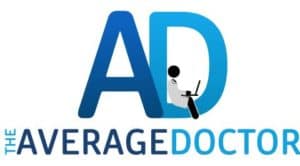
What if I told you it was possible for your employer to pay off your medical school loans? How would that affect your financial situation?
Yes, some hospitals and other physician employers will pay off your medical school loans. This is not an industry standard and will not be offered with every contract. However, employers know that loan repayment is an enticing offer that can attract the best physicians to their facility.
One of the first things to consider when you graduate residency is what to do about your student loans. You could find a job somewhere that qualifies toward public service loan forgiveness. Or maybe stick with your federal loans and make standard payments until they’re gone. But why not see if your hospital would pay off your loans for you?
Hospitals Can Pay Off Your Medical School Loans
When you’re looking for your first job as an attending physician, there are a number of things to consider. Most people are familiar with the basics like location, hours, vacation time, and salary. But things get a little more complicated when you start talking about benefits.
Benefits are the non salary perks of a job and are offered by pretty much every employer in medicine. The basic benefits are things like health insurance, disability insurance, and retirement plans. The specifics of what benefits are offered differ by each employer and these typically aren’t negotiable. However, some benefits are.
Negotiable benefits, also called incentives, are things like sign on bonuses, relocation bonuses, and, yes, student loan repayment.
If your employer offers these type of benefits, congratulations. They aren’t being offered as much now as they were even three years ago, and to find an employer that meets your other criteria like location and hours that also offers these incentives is very lucky.
Exactly how much is offered can vary depending on the job. I’ve personally seen sign on bonuses ranging from $5,000 per year to $20,000 per year. Relocations bonuses are one time payments typically less than $10,000 and definitely less than $10,000. Student loan repayment can be anywhere from not being offered at all to $30,000 per year.
You might have noticed that these different types of bonuses are all just different labels for the same pots of money. And you’re right. Whether it’s called a sign on bonus, a relocation bonus, or a student loan bonus, in the end it’s still money that you get from your employer and pay taxes on.
Interestingly, in the 2020 CARES Act, there was a provision that allowed employers to contribute up to $5250 toward an employee’s student loans without having to pay payroll or income tax. This was a surprising benefit in the 2020 law and could be a great incentive for employers to continue offering student loan repayment if it continues into 2021 and beyond.
How To Get Your Employer To Pay Your Student Loans
As I mentioned before, physician employers can pay off your student loans, but it’s increasingly rare that they do.
The trick to making sure that your employer pays off your students loans isn’t really a trick at all. You typically have to either be a very desirable employee or working in an undesirable location. Or both.
I can think of three friends who each had their student loans paid by their hospitals. All three worked in emergency medicine and got their jobs a few years ago before Covid and before the supply of ER doctors increased. Of the three, one of their facilities no longer offers student loan repayment to new hires and the other two have significantly decreased the payment by extending the same amount over multiple years.
Today, physicians in many different specialties are being offered student loan repayment as part of their contract negotiations. You can find them just by searching the different online job boards. It just so happens that most of these contracts tend to be available in less desirable locations.
That’s not to say it’s impossible to get a hospital to pay off your student loans. It just means it’s harder than it used to be, and you may need to negotiate.
What To Do When Your Employer Doesn’t Offer Student Loan Repayment
If you’re a graduating physician and you’re not able to find a job that pays off your student loans, don’t despair. Student loans may feel like an insurmountable drag on your net worth, but they aren’t. Especially as a physician, you are completely capable of lowering your student loan debt. Here are some strategies outside of employer repayment to do just that.
VA Education Debt Reduction Program (EDRP)
Have you considered working for the Department of Veterans Affairs (VA)? While fewer and fewer private employers seem to be offering student loan repayment incentives, the VA recently approved an increase to their student loan repayment program. This is known as the Education Debt Reduction Program, or EDRP.
As part of the US government, the VA is funded by congreess. And in 2018 congress approved an increase in the max amount you could receive as part of the EDRP. Before 2018, the max was $120,000 over five years. Now you can get $40,000 per year or $200,000 in student loan repayment.
Similar to private employers, this incentive is intended to retain and recruit otherwise “difficult to recruit direct patient care positions”. That means you, attending physicians.
You can find VA jobs that are eligible for this program on USAJobs.gov or VACareers.va.gov. Full details on the EDRP can be found here.
Public Service Loan Forgiveness
Another option to have someone else pay off your loans if your employer won’t is public service loan forgiveness (PSLF). All you have to do is have direct federal loans and make 120 on-time payments while working full time for a qualified employer. That’s it!
Ok, easier said than done.
How much you owe for each payment depends on the different income based repayment plans, IBR, PAYE, and REPAYE. For example, while on REPAYE, you’ll owe 10% of your discretionary income per year.
You’ll also need to work for a qualified employer (non-profit, military, VA, academics, etc.).
Interestingly, this is an amazing deal for residents. As long as you make qualified payments in residency, you’ll have 36 or more (depending on the length of your residency and fellowship) of the 120 payments covered. And they’ll be based on your much lower resident salary. If you have massive student loans and spent a long time in residency and fellowship, this is almost a no-brainer.
However, because payments are based on your income, PSLF isn’t a great option for everyone. With the shorter residencies and with such high physician incomes (average $243,000), it’s actually possible to completely pay off your loans before your 120 qualifying payments go through.
In that case, your loans would be gone before you could even qualify for PSLF. You’d be better off with one of the following two options.
Refinancing Your Loans
Let’s assume that going through income based repayment, you’d completely pay off your loans 7 years in. In this situation, you don’t get any benefit of public service loan forgiveness and you’re paying your loans at the much higher federal student loan interest rate (5-7%). If you won’t qualify for forgiveness anyway, wouldn’t you want to save some money with a lower interest rate?
Let’s say you’re the average doctor and graduated medical school with $200,000 in student loan debt. You could refinance your 5.5% federal loans today at a rate of 2.63%. Over the assumed 7 years it takes to pay off that debt, that would save you $22,224.
That’s the power of refinancing.*
*At the time of writing this post, the federal government set interest rates on federal loans to 0% temporarily due to the Covid 19 pandemic. As long as these rates continue, I DO NOT recommend refinancing your loans
Standard Federal Loan Repayment
The final option for paying off your loans without employer assistance is simply leaving them as they are when you graduate. The vast majority of medical school loans are in the form of graduate direct loans. These types of loans are backed in part by the federal government. No, that doesn’t mean the government will pay them for you if you default or declare bankruptcy, but they do provide you with some benefits. Benefits you lose if you refinance.
There are three main reason to not refinance your federal student loans
- You can’t afford standard payments and need an income based plan. (i.e. you’re in residency or fellowship)
- You have bad credit and can’t refinance to a significantly lower interest rate
- You’re working toward PSLF
- *Bonus* If there’s an ongoing pandemic and the government sets interest rates to 0%

One thought on “Do Hospitals Pay Off Medical School Loans?”